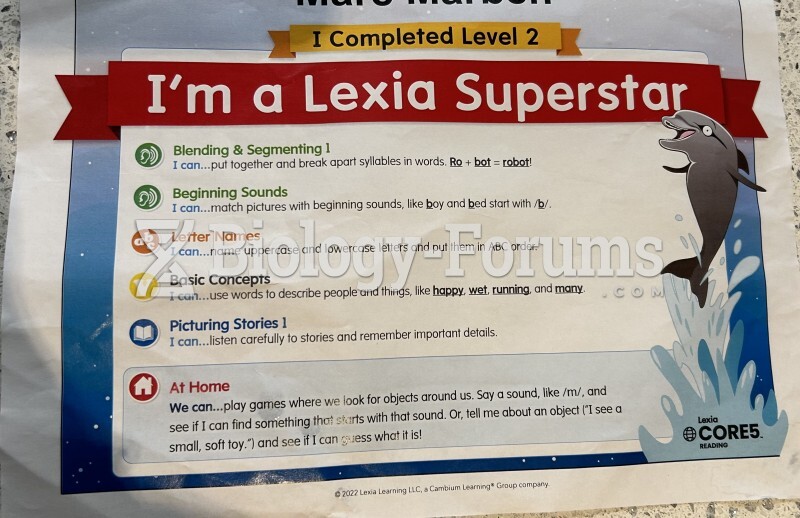|
|
|
Nearly 31 million adults in America have a total cholesterol level that is more than 240 mg per dL.
The average person is easily confused by the terms pharmaceutics and pharmacology, thinking they are one and the same. Whereas pharmaceutics is the science of preparing and dispensing drugs (otherwise known as the science of pharmacy), pharmacology is the study of medications.
Nearly all drugs pass into human breast milk. How often a drug is taken influences the amount of drug that will pass into the milk. Medications taken 30 to 60 minutes before breastfeeding are likely to be at peak blood levels when the baby is nursing.
Vaccines prevent between 2.5 and 4 million deaths every year.
If all the neurons in the human body were lined up, they would stretch more than 600 miles.







